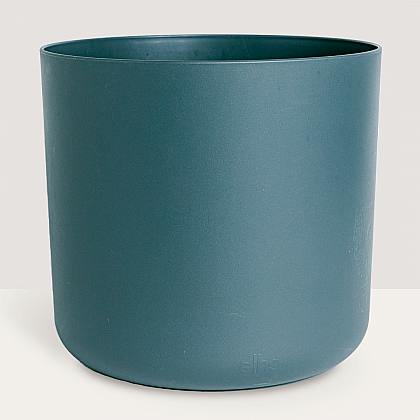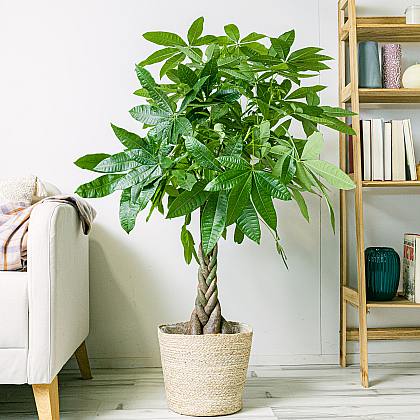A step towards sustainability: how to reduce waste in your garden
A step towards sustainability: how to reduce waste in your garden. Did you know that we can make a big difference in our environment with small changes in our...
A step towards sustainability: how to reduce waste in your garden. Did you know that we can make a big difference in our environment with small changes in our garden? In this article, we'll discover how to turn our green space into a sustainable oasis. From composting organic waste to creatively reusing objects, we'll explore various ways to reduce our waste and take care of the planet. In addition, we'll learn about the art of rainwater harvesting, eco-friendly alternatives to chemical pesticides and fertilizers, and how to engage the whole family in sustainable practices. Get ready to get inspired and transform your garden into an eco-friendly place!
The importance of sustainability in our gardens
In the quest for a more sustainable lifestyle, we can't forget about our beloved gardens. Did you know that our practices in caring for these green areas can have a significant impact on the environment? That's why it's critical to understand the importance of sustainability in our gardens.
When we talk about sustainability in the garden, we mean using practices and techniques that are respectful of the environment and promote the conservation of natural resources. This involves avoiding excessive water use, reducing waste generation, and using organic products instead of harmful chemicals.
Taking care of our garden in a sustainable way not only benefits the planet, but it can also bring personal benefits. A sustainable garden can be a quiet and relaxing space where we can connect with nature and enjoy moments of peace. In addition, by using eco-friendly methods, we are protecting our health and that of our families by avoiding exposure to toxic substances.
But how can we make our garden more sustainable? In this article, you will find practical and easy-to-implement tips. From composting organic waste to collecting rainwater to water plants, there are many eco-friendly alternatives we can adopt. You can even involve the whole family in these sustainable practices!
Don't underestimate the power you have to make a difference. Every small step towards sustainability in your garden counts. So get started today and join the fight for a greener, more sustainable future. Your garden will thank you, and you'll be proud to contribute to a positive change in the world, too.
Tips for Composting Organic Garden Waste
If you're a gardening lover and care about the environment, a great way to reduce waste in your garden is through composting. Composting is a natural process that turns organic waste into rich fertilizer for your plants. And best of all, you can do it yourself!
Here are some tips to get you started composting your garden's organic waste. First, choose a suitable place for your compost bin. It can be in a corner of the garden or even in a special container. Make sure it's protected from direct rain and has good ventilation.
Then, start collecting organic waste, such as fruit and vegetable scraps, eggshells, coffee grounds, and dried leaves. Avoid adding meats or dairy products, as they can attract unwanted animals. Cut the waste into small pieces to speed up the decomposition process.
As you add organic waste to your compost bin, be sure to mix it regularly to maintain the balance between dry and wet materials. If the compost looks too dry, you can spray it with water. And if it's too wet, add more dry material.
Remember that the composting process takes time, so be patient. In a few months, you'll have a natural, nutritious fertilizer ready to feed your plants and flowers. In addition, you will be reducing the amount of waste that ends up in landfill.
Composting organic garden waste is a simple and rewarding way to contribute to sustainability and care for the environment. Go ahead and try it and you'll see how your plants will thank you!
Creative Repurposing: How to Give Objects a Second Life in the Garden
If you are one of those who like to give a second life to old objects, you will love this idea for your garden! Creative reuse is a fun and exciting way to reduce waste and add a unique touch to your outdoor space. Imagine turning old coffee mugs into colorful pots or using used tires as original planters. The possibilities are endless! In addition to being an economical way to decorate your garden, you will also be contributing to the care of the environment by avoiding disposing of these objects in the trash. Creative repurposing is not only good for the planet, but it can also awaken your artistic side and give you a sense of satisfaction in watching your ideas become reality. So the next time you see an old object at home, think about how you could transform it into something beautiful and useful for your garden. You won't regret giving those forgotten items a second chance and watching them come to life in your green oasis!
Native plants: the key to a sustainable garden
When it comes to creating a sustainable garden, native plants are the key to success. These plants are those that occur naturally in our region and have evolved to adapt to local conditions. By choosing native plants for our garden, we are promoting biodiversity and preserving the natural balance of our environment.
Native plants have many advantages. First, they are more resistant to local diseases and pests, which means they will require fewer pesticides and chemical fertilizers. In addition, these plants are used to the climatic conditions of our area, so they will need less water and special care. Not only will this help us save natural resources, such as water, but it will also reduce our ecological footprint.
In addition to their environmental benefits, native plants can also beautify our garden in a unique way. Its natural colors and shapes add a special touch and bring the landscape to life. By using these plants in our garden, we are creating a space that reflects the identity of our region and promotes the conservation of the local flora.
So the next time you're thinking about adding new plants to your garden, consider opting for native species. Not only will you be contributing to the sustainability of your environment, but you will also be creating a beautiful space full of life.
The Art of Collecting Rainwater to Water Your Garden
Collecting rainwater to water your garden is an art that not only benefits your plants, but also the environment. Imagine being able to harness the abundance of water falling from the sky and use it sustainably instead of relying on drinking water sources. It's a practice that connects you to nature and makes you feel part of a bigger cycle. When you install a rainwater harvesting system in your garden, you're taking a step towards self-sufficiency and conservation. Every time you see water fall into your barrels or tanks, you feel a special thrill, as if you are catching life itself. Then, when it's time to water your thirsty plants, you feel unmatched satisfaction knowing you're using a renewable and free resource. Plus, rainwater is rich in natural nutrients, which means your plants will be even happier and healthier. Collecting rainwater is a simple yet powerful way to contribute to caring for the planet and teach future generations about the importance of being mindful of water use. So go ahead and join the art of rainwater harvesting and find out how you can make a difference in your garden and the world.
Eco-friendly alternatives to chemical pesticides and fertilisers
When it comes to keeping our garden sustainable, it's critical to look for eco-friendly alternatives to chemical pesticides and fertilizers. These products can be harmful to the environment and also to our health. Fortunately, there are many natural and environmentally friendly options that we can use instead.
One of the most popular alternatives is the use of natural insecticides. For example, neem oil is an excellent pest repellent that does not cause harm to beneficial insects or contaminate the soil. Another effective method is biological control, which involves introducing natural predators of pests, such as ladybugs or parasitoid wasps.
As for fertilizers, we can opt for organic fertilizers such as compost or manure. These materials are rich in nutrients and improve soil structure, without causing a negative impact on the environment. We can also use compost tea, an infusion made with compost that nourishes plants naturally.
It's important to remember that prevention is key in a sustainable garden. Keeping our plants healthy and strong through good growing practices, such as crop rotation or choosing resistant varieties, can reduce the need for pesticides and chemical fertilizers.
In short, by opting for eco-friendly alternatives to pesticides and chemical fertilizers, we are taking a step towards sustainability in our garden. Not only will we be protecting the environment and our health, but we will also be fostering a natural balance in our little green paradise.
How to Engage the Whole Family in Sustainable Practices in the Garden
One of the best ways to encourage sustainability in our garden is to involve the whole family in these practices. There is nothing more exciting than working together to care for and protect our natural environment! You can start by assigning tasks to each family member, such as watering plants, collecting organic waste, or maintaining compost. Not only will this spread the workload, but it will also make everyone feel like an important part of the process.
In addition, you can organize fun and educational activities in the garden for children to learn about the importance of sustainability. For example, they can help plant seeds and watch them grow, or even build their own vegetable garden at home. This will allow them to connect with nature and understand the life cycle of plants.
Another way to involve the whole family is by creating creative projects using recycled objects in the garden. They can design pots out of plastic bottles, use old cups as bird feeders, or even build a small insect shelter. These activities will not only promote reuse, but also spark everyone's imagination and creativity.
Ultimately, by involving the whole family in sustainable practices in the garden, we will be teaching our loved ones the value of caring for the environment and how every little action can make a difference. Together, we can create a positive impact on our environment and enjoy our beautiful garden to the fullest.
Our garden can become a space of sustainability and respect for the environment. Reducing waste, composting, reusing objects, using native plants, collecting rainwater, and opting for eco-friendly alternatives are all small steps that make a difference. But we must not forget that sustainability goes beyond our own garden. It is a commitment that we must make in all aspects of our lives. Every action counts, no matter how small it may seem. What other sustainable practices can we implement in our day-to-day lives? How can we inspire others to join this cause? Let's reflect on it and continue to look for creative ways to take care of our environment. Together we can achieve a more sustainable and harmonious world for future generations


